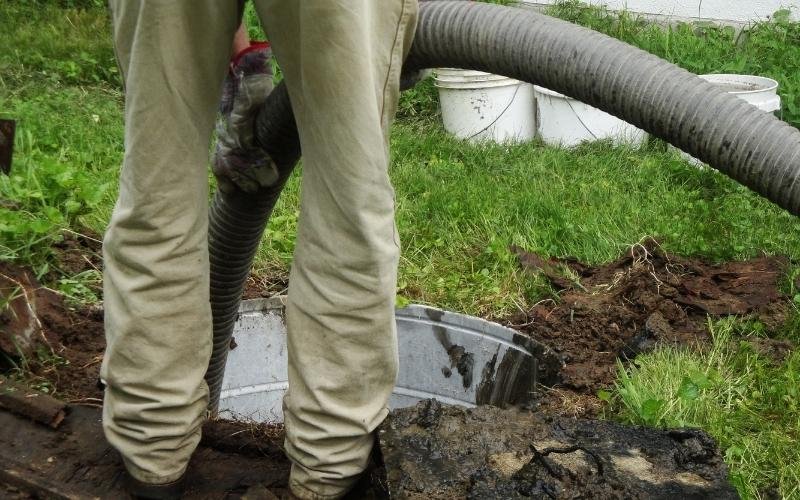Table of Contents
Pumping the septic tank is very important because not pumping causes several issues including health hazards. To maintain a safe and sound septic system, you should get the tank pumped regularly. The question is- how often should the septic tank be pumped?
The general rule of pumping the septic tank is pumping it once every 3 to 5 years. If you want, you can maintain the rule and get the job done accordingly. But in some cases, you may have to pump quicker than this. Also, sometimes, having a few more years doesn’t make a problem.
It all depends on several factors. The factors that have impacts on the frequency of septic tank pumping are given below.

Factor 1- Size of the Tank
Tank size plays an important role here, and it must. A large tank that can store a lot of sludge (decomposed human waste) can easily last for around 5-6 years without any need for pumping. And you must know the opposite. When the tank is small, you should pump it more frequently. Pumping once every 2-3 years is a good way for small tanks.
Factor 2- People Living in the Household
The number of people living in the household is another factor that has an impact on the frequency of pumping the septic tank.
If there are around 1-3 people in your house and you own a medium or large septic tank, you can go for pumping once every 5-6 years. But if there are more people, let’s say 6-8 persons, and you have a medium to a large tank, the pumping frequency should be once every 2-3 years. For smaller tanks, the expected pumping frequency would be more.
Factor 3- Volume of Solid Waste
Your septic tank is a place where human waste is decomposed and turned into sludge. The system is not made for solid waste.
If you throw solid waste in the system regularly, it gets full quickly. How fast the septic tank gets full depends on the volume of solid waste you throw in it. So, if your tank contains a lot of solid waste, you’ll have to get it pumped more frequently.
On the other hand, if you stay careful and don’t through solid waste in the tank, you can expect to pump the tank less frequently.
Factor 4- Use of Chemicals
The amount of household chemicals you use also has an impact on pumping frequency. The reason is the impact of the chemical on the useful bacteria.
Most chemicals used in household washing products are harmful to the bacteria in the septic tank. Those kill the bacteria and make the system damaged. As a result, the decomposition process becomes slower and the tank gets full quickly. So, you have to pump it frequently.
On the other hand, if you use septic-safe products with less harmful chemicals, the decomposition process remains smoother. Thus, it takes time for the tank to get full and you have to pump it less frequently.
These are some of the most common aspects that have impacts on the pumping frequency. There are some factors related to these, for example- the amount of wastewater generated, types of chemicals used in the household, etc.

Signs for Pumping Septic Tank
In your regular pumping routine, sometimes you may face some situations that ask you to pump the septic tank. When you see the signs, you shouldn’t be late to check the tank and pump if it is full. Below here are the signs that tell that your septic tank is probably full.
Sewage Backup
When the tank gets full and can’t take load anymore, it sends the waste back to your toilet again. So, if you experience a sewage backup, check the septic tank because it might be full. Pump if it is full.
Gurgling Noise
When the waste is decomposed, it creates gas. If the tank gets full, there is no space for the gas to go. So, the tank sends that gas back to the input lines. It creates a gurgling sound in your toilet.
The random gurgling sound is common in septic systems. But if you think that this time it is more frequent, you should check the septic tank.
Bad Odor
The gas created in the decomposition process has a bad smell that can make you vomit. When the gas comes out through your toilet line, it causes a bad odor in your toilet as well as in the household.
Such odor asks you to check and pump the septic tank.
Clogged Line
When the tank can’t take load anymore, the wastewater you send to the tank gets clogged in the septic system. Thus, within a few days, the line gets clogged too. If you see that wastewater is not getting disappeared as fluently as before, go and check the septic tank. Maybe it is full.
Standing Water in the Lawn
Water might stand on your lawn after rain. But if there is no sign of rain and still you have standing water in the lawn, it says that the septic tank should be pumped. It happens because of tank overflow. The tank sends water out through any leak in the tank or septic system.
Greener Grass
When the tank can’t hold waste anymore and gets a chance of sending water out, the grass of that area gets greener because of getting fertilizer from the decomposed waste and water.
So, seeing greener grass in a specific area of your lawn is not something you should be happy with. Check the septic tank as soon as possible. It might need to be pumped.
High Nitrate in Well Water
If your garden has a well and you find a high amount of nitrate in the well water, you should check your septic tank. Because of tank overflow, wastewater might get mixed with the well water.
Related Article: How Much Weight Can Drive Over a Septic Tank?
Final Verdict
Because of several reasons, the tank might get full faster than you think. So, you should check the tank frequently, maybe once a year or six months, to make sure that your tank is free from any damage and you’re free from hassles.
Checking regularly is far better than waiting for such damaging signs to tell you that the tank should be pumped. If you’re installing a new septic tank, discuss the frequency of pumping with the professional who is installing it.
